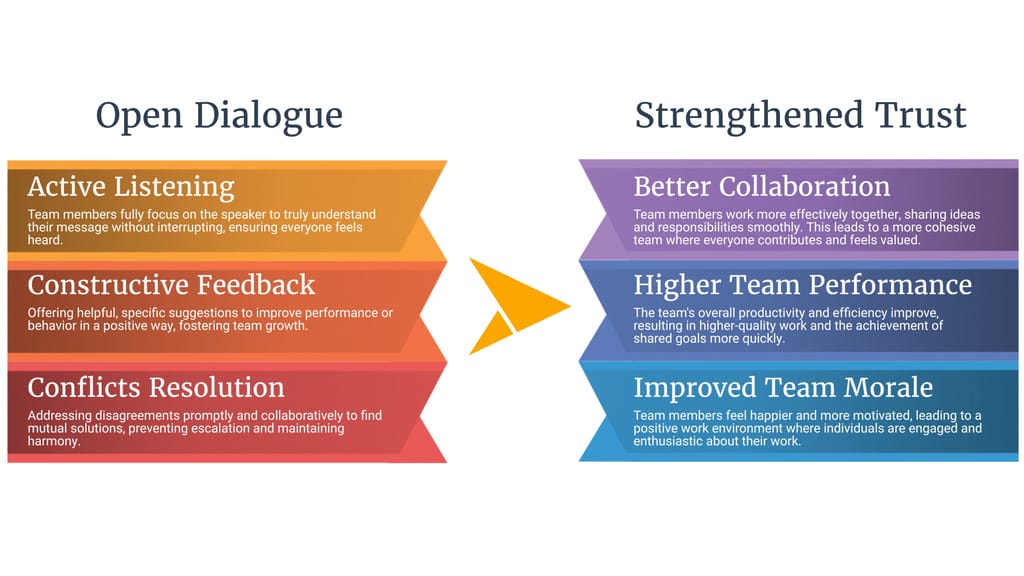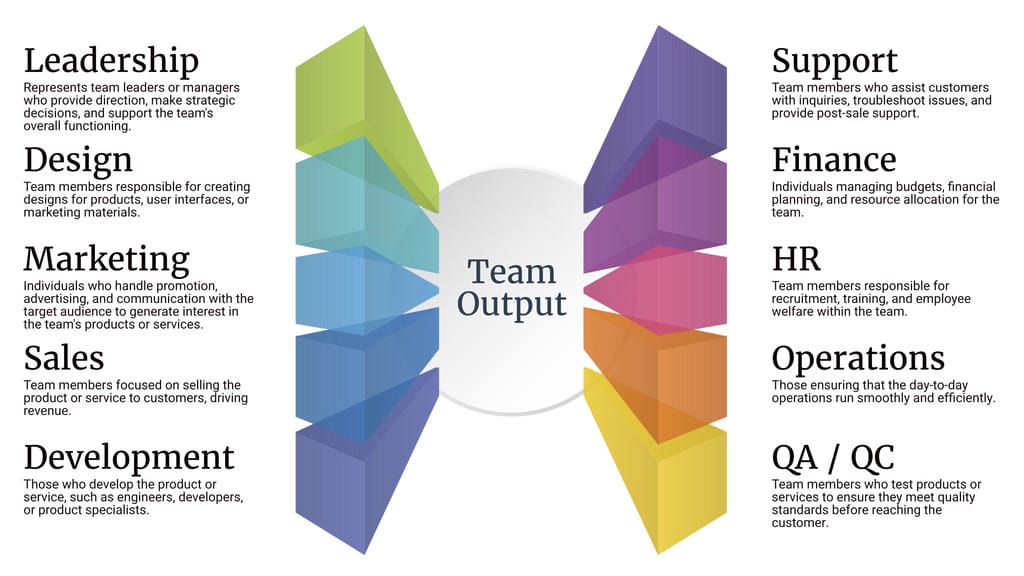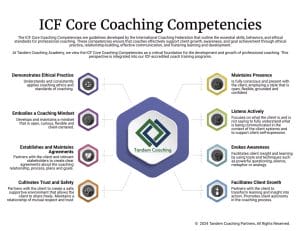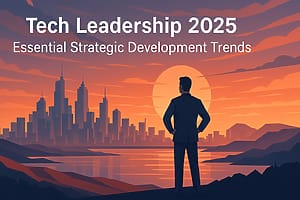Team coaching helps people work together better, solve problems, and achieve their goals. If you're a coach, helping a team succeed can be one of the most rewarding parts of your job. But coaching a team isn't just about leading meetings or solving conflicts. It’s about guiding a group of people to work as one, helping them communicate well, build trust, and stay focused.
In this article, we’ll talk about the 7 most important parts of effective team coaching. We’ll explore things like how to create a strong sense of purpose, ways to encourage accountability, and how to use team-building strategies that really work. By the end, you’ll have the tools you need to help any team succeed in reaching their goals.

Cornerstone 1: Establishing a Shared Purpose
When coaching a team, one of the first things you need to do is help them establish a shared purpose. This means making sure everyone understands what they are working toward and why it matters. Without this common goal, team members may work in different directions, which can slow down progress and lead to frustration.
Why a Shared Purpose is Important
A shared purpose is like a map. If everyone knows where they are going, it’s easier to work together and reach the destination. Teams that lack this shared vision often struggle because they don’t know how their individual tasks fit into the bigger picture. By helping the team define its purpose early, you set them up for success.
For example, imagine coaching a team in a nonprofit organization that wants to raise money for children’s education. Some team members might focus on planning events, while others work on social media campaigns. If they don’t have a shared purpose, each person might think their part is the most important, causing tension. But if the whole team agrees their purpose is to provide as many children as possible with access to education, then each person will understand how their work supports the larger goal.
Data backs this up: A study from the Harvard Business Review showed that teams with a clearly defined purpose are 50% more likely to achieve their goals compared to teams that don’t. The purpose creates focus, motivation, and helps prevent misunderstandings about roles (Coaching.com).
How to Create a Shared Purpose
As a coach, it’s your job to help the team define this purpose. Start by asking questions like:
- Why does this team exist?
- What is the end goal we are trying to achieve?
- How does each team member’s role contribute to this goal?
Let’s say you’re working with a group of teachers who want to create a better online learning experience for students. You might help them agree on a purpose like, “Our goal is to provide every student with access to high-quality learning materials, no matter where they are.” This way, even though one teacher might be creating lessons and another managing the technology, they all know their work is part of a bigger mission.
Long-Term Benefits of a Shared Purpose
When a team has a shared purpose, it’s easier to deal with challenges. If problems arise, the purpose serves as a guide for decision-making. It also boosts accountability because each team member knows how their work contributes to the team’s success.
For example, a sales team at a tech company may be struggling to meet quotas. Once they define their shared purpose — perhaps to help small businesses thrive by offering affordable software solutions — they can refocus their efforts. Now, they’re not just selling software; they’re helping businesses succeed, which gives their work more meaning.
One thing many teams overlook is revisiting their shared purpose over time. A purpose may evolve, especially as the team grows or faces new challenges. Revisiting and refining the purpose ensures the team stays aligned even when circumstances change.
Tools to Help Define Purpose
There are tools that can make this process smoother, such as purpose-mapping exercises or team-building workshops. For example, you can use a simple worksheet that allows each team member to write down what they believe the team’s purpose is. After gathering all the answers, the coach can guide the team to merge these ideas into one unified statement.
By helping the team define and stick to a shared purpose, you’re giving them a powerful tool that keeps them focused, motivated, and ready to tackle any challenge.

Discover ICF PCC and ICF ACTC Team Coaching Competencies and Mastery
Are you eager to magnify the impact of your coaching practice?
Our ICF Team Competencies program offers a seamless transition for those who have mastered the core competencies, allowing you to delve deeper into the complexities and rewards of team coaching.
Explore this opportunity today.
Cornerstone 2: Promoting Accountability
Accountability is an essential part of any successful team. It means that every member of the team takes responsibility for their actions and contributes to the team’s goals. Without accountability, it’s easy for tasks to fall through the cracks, and team members might not feel motivated to give their best effort. As a team coach, one of your main roles is to help teams establish systems that promote accountability.
What is Accountability in a Team?
In simple terms, accountability is when team members follow through on their commitments. It’s about making sure everyone does what they say they will do, and if they don’t, there are clear steps in place to address the issue. This is especially important in team environments where every person’s work affects the entire group.
For example, think of a team working on a marketing campaign. If one person doesn’t complete their part, like designing graphics, the campaign can’t move forward. This delays the whole team and can lead to frustration. But when accountability is in place, everyone knows their role, deadlines are clear, and there’s a process for checking in on progress.
Studies show that teams with high levels of accountability tend to perform better. According to Gallup, employees who are accountable for their work are more engaged and productive (Coaching.com).
Setting Up Accountability Systems
As a coach, you can help teams create systems to promote accountability. One effective method is to encourage the team to set SMART goals: goals that are Specific, Measurable, Achievable, Relevant, and Time-bound. These goals give each team member a clear idea of what is expected from them, which makes it easier to track progress.
For instance, a product development team might set a SMART goal to launch a new app feature within three months. Each team member’s tasks are broken down into smaller, specific goals, such as completing the design phase within one month or finishing the code within two months. By breaking down larger tasks into smaller goals, it’s easier to see if someone is falling behind and provide support before it’s too late.
Regular Check-Ins and Feedback
Another key element of accountability is having regular check-ins where team members can report on their progress. Weekly or bi-weekly meetings give everyone a chance to update the team on what they’ve accomplished and what challenges they’re facing. This keeps the team on track and encourages open communication.
In addition to check-ins, feedback is an important part of accountability. Positive feedback can reinforce good performance, while constructive feedback helps team members understand what they need to improve. As a coach, it’s your job to help teams provide feedback in a way that is helpful and supportive, rather than blaming or criticizing.
For example, instead of saying, “You didn’t meet your deadline,” a more constructive approach would be, “I noticed you didn’t meet the deadline. Can you share what happened so we can find a solution together?”
One insight that teams often overlook is the importance of self-accountability. While it’s crucial to hold each other accountable, each team member also needs to take personal responsibility for their own actions and commitments. Encouraging self-accountability can strengthen team bonds, as everyone feels equally responsible for the team’s success.
Encouraging Ownership of Tasks
Ownership is closely tied to accountability. When team members feel a sense of ownership over their work, they’re more likely to hold themselves accountable. You can foster this by giving team members more autonomy over how they complete their tasks. Instead of micromanaging, trust the team to find their own way to meet goals, and only step in when necessary.
For example, in a remote team, each member might be responsible for completing a portion of a project by a certain deadline. Instead of having strict daily check-ins, allow team members to manage their own time, as long as they meet the overall deadline. This builds trust and encourages the team to take full responsibility for their work.
By promoting accountability within the team, you help create a culture where everyone takes responsibility for their actions and works together toward common goals. This not only improves team performance but also strengthens relationships within the team.
Cornerstone 3: Building Trust
Building trust is one of the most important aspects of team coaching. Trust allows team members to feel comfortable sharing ideas, giving feedback, and working together effectively. Without trust, teams struggle to communicate, collaborate, and achieve their goals. As a coach, your job is to help teams build and maintain trust, which is the foundation of any successful team.
Why Trust is Critical for Team Success
Trust is the glue that holds teams together. It allows team members to rely on each other and feel confident that everyone is working toward the same goal. Without trust, teams often experience miscommunication, conflict, and disengagement. A lack of trust can cause team members to withhold information, avoid responsibility, and even become defensive when issues arise.
In a survey conducted by PricewaterhouseCoopers (PwC), it was found that high-trust organizations are 2.5 times more likely to be high-performing organizations (PWC). Teams that trust each other communicate better, resolve conflicts faster, and are more innovative.

How to Build Trust in a Team
As a team coach, one of your main goals should be to help the team establish trust from the very beginning. Here are some practical ways to build trust:
-
Encourage Transparency:
- Encourage team members to be open and honest about their thoughts, ideas, and concerns. By creating an environment where people feel safe to speak up, you help foster transparency.
- For example, during team meetings, you might encourage members to share not just their successes but also their challenges. This helps build a culture of openness where people aren’t afraid to admit when they need help.
-
Promote Vulnerability:
- Vulnerability plays a key role in building trust. When team members can share their fears, doubts, or uncertainties, it allows others to offer support, which strengthens team bonds.
- A great example is a leadership team that sets the tone by sharing personal challenges they’ve faced in their roles. When leaders show vulnerability, it encourages the rest of the team to do the same.
-
Set Clear Expectations:
- Trust can only be built when everyone knows what’s expected of them. By setting clear expectations and making sure everyone understands their role, you can avoid misunderstandings and promote accountability, which, in turn, builds trust.
- For instance, in a software development team, each member might have specific tasks related to coding, design, or testing. By clearly defining these roles, you ensure that each person knows what they’re responsible for, making it easier for them to trust that others will do their part.
Activities to Foster Trust
There are several team-building activities that can help strengthen trust among team members. Some examples include:
- Trust Falls: A classic activity where one person falls backward, trusting their team to catch them. While it seems simple, it teaches team members to rely on each other.
- Open Feedback Sessions: Creating regular opportunities for team members to give and receive feedback builds a culture of honesty and mutual respect.
- Team Storytelling: This activity involves each team member sharing a personal story about a challenge they’ve faced and how they overcame it. It helps to humanize team members and fosters a deeper connection between them.
Maintaining Trust Over Time
Building trust is not a one-time event; it requires continuous effort. As a coach, you need to help the team maintain trust by creating regular check-ins where team members can share their progress and discuss any concerns that arise. Encourage them to celebrate small wins and recognize each other’s contributions. This constant communication keeps trust strong.
Another way to maintain trust is by promoting psychological safety. This concept means that team members feel safe to take risks and make mistakes without fearing blame or punishment. In fact, Google’s Project Aristotle study found that psychological safety was the most important factor in determining team success (Coaching.com). Teams that feel safe are more likely to experiment, innovate, and push boundaries without worrying about failure.
One thing teams often forget is that trust needs to be rebuilt after conflicts. When a disagreement happens, it’s important to address it head-on, have open conversations, and work together to resolve the issue. Avoiding conflicts or letting them fester can erode trust over time.
Trust in Remote Teams
With more teams working remotely, building trust can be even more challenging. Without face-to-face interactions, it’s harder to pick up on non-verbal cues, and team members may feel disconnected from each other. To build trust in remote teams, encourage regular video calls where team members can see each other’s faces and engage in non-work-related conversations. Tools like Slack or Microsoft Teams can also help keep communication flowing, fostering a sense of connection even from a distance.
Building and maintaining trust is essential for any successful team. As a team coach, you play a key role in helping teams create an environment where trust can grow. By encouraging transparency, promoting vulnerability, and facilitating team-building activities, you can guide teams toward stronger relationships and better performance.
Cornerstone 4: Managing Conflict
Every team experiences conflict at some point. Disagreements can arise over ideas, processes, or even personalities. But conflict isn't always a bad thing—it can actually help teams grow, innovate, and improve if managed correctly. As a team coach, your job is to teach teams how to navigate conflicts in a healthy way so they can stay productive and focused on their goals.
Understanding Conflict in Teams
Conflict happens when people have different viewpoints or interests. In a team setting, this might be a disagreement over how to approach a project, how to allocate resources, or even who should take on specific tasks. While it’s natural to want to avoid conflict, avoiding it often makes things worse.
Unresolved conflicts can fester, creating tension within the team and reducing productivity. According to the American Management Association, unresolved conflicts in the workplace can result in lost time, decreased efficiency, and even employee turnover (Tandem Coaching).
The Benefits of Healthy Conflict
When managed well, conflict can actually be a positive force within a team. It can encourage open discussions, generate new ideas, and lead to better decision-making. For example, a sales team might disagree on the best strategy for approaching new clients. Instead of one person’s idea dominating, a healthy debate could result in a hybrid approach that combines the best of both ideas.
To manage conflict effectively, it’s important to recognize that disagreements often stem from differences in perspective, not from personal attacks. Encouraging teams to focus on the issue, rather than the person, can help keep conversations productive.
Conflict Resolution Strategies for Team Coaches
As a coach, you need to equip teams with tools and strategies to resolve conflicts in a constructive way. Here are a few techniques that can help:
- Facilitated Discussions:
- Sometimes, team members need a neutral third party to help them talk through their issues. As a coach, you can facilitate these discussions by ensuring everyone gets a chance to speak and helping the team stay focused on solutions, not blame.
- For example, if two team members are disagreeing about the direction of a project, you could step in to help guide the conversation. Encourage each person to explain their perspective, and then help the team brainstorm ways to combine their ideas into a workable solution.
- The “Yes, And” Technique:
- Borrowed from improvisation, this technique encourages team members to build on each other’s ideas, rather than shutting them down. Instead of saying “No, that won’t work,” a team member would say, “Yes, and we could also try this.” This keeps the conversation open and collaborative.
- A marketing team, for example, might use this approach when planning a campaign. One person might suggest using social media ads, and another might add, “Yes, and we could create a series of blog posts to support those ads.”
- Encouraging Empathy:
- Conflict often arises when people don’t take the time to understand each other’s perspectives. Encourage team members to practice empathy by actively listening to each other and trying to see things from the other person’s point of view.
- You can do this by having team members paraphrase what the other person is saying before responding. This ensures that everyone feels heard and understood, which can help defuse tension.
One insight that teams often overlook is that conflict is a normal part of working together. Trying to eliminate conflict entirely is neither realistic nor beneficial. Instead, focus on teaching teams how to approach conflict with curiosity, looking for ways to learn from it rather than trying to avoid it altogether.
Using Conflict as a Learning Tool
Not all conflicts are bad, and they can offer valuable learning experiences for the team. After resolving a conflict, it’s helpful to reflect on what happened and what the team can learn from it. This can turn potentially negative situations into opportunities for growth.
For instance, after a team resolves a disagreement about how to divide project responsibilities, they might reflect on how better communication could have prevented the issue in the first place. This reflection could lead to new strategies for assigning tasks more clearly in the future.
You can also encourage teams to create “conflict guidelines,” which outline how the team will handle disagreements moving forward. This could include things like focusing on facts, avoiding personal attacks, and seeking solutions rather than placing blame.
Preventing Future Conflicts
While conflict can be beneficial, it’s also helpful to prevent unnecessary conflicts. One way to do this is by establishing clear roles and responsibilities for each team member. When everyone knows their job and understands the team’s overall goals, it reduces the likelihood of confusion and tension.
Regular check-ins and open communication also help prevent conflicts. When team members feel comfortable sharing their concerns early on, it’s easier to address issues before they become full-blown conflicts.
For example, a software development team that holds weekly progress meetings can catch problems early—whether it’s a missed deadline or unclear expectations—before they turn into larger issues.
By helping teams develop strong conflict resolution skills, you set them up for long-term success. Conflict doesn’t have to be something to fear; it can be a powerful tool for learning, growth, and innovation.
Cornerstone 5: Enhancing Communication
Communication is the lifeblood of any team. When team members communicate well, they can work through problems, share ideas, and collaborate effectively. On the flip side, poor communication can lead to misunderstandings, mistakes, and frustration. As a team coach, helping the team improve their communication skills is crucial to their success.
Why Communication is Key
Effective communication helps team members understand each other’s perspectives, share their progress, and work together towards common goals. Teams that communicate well tend to perform better because they can resolve conflicts quickly, share insights, and ensure everyone is on the same page.
According to a study from McKinsey, productivity improves by up to 25% in organizations where employees feel connected and communicate openly (Coaching.com). On the other hand, poor communication can cost businesses millions of dollars in lost productivity and errors. For teams to reach their full potential, clear, open, and honest communication is essential.
Active Listening: A Core Communication Skill
One of the most important communication skills you can teach teams is active listening. Active listening goes beyond just hearing words; it’s about fully understanding what the other person is saying and responding thoughtfully. When team members actively listen to each other, it reduces the chances of misunderstandings and helps build stronger relationships within the team.
For example, in a team meeting, instead of thinking about what to say next, encourage team members to focus on what the speaker is saying and ask clarifying questions. This ensures that everyone feels heard and understood, which fosters trust and better collaboration.
A simple activity you can use to teach active listening is a “paraphrase game,” where one person shares an idea, and the other person repeats back what they heard in their own words. This helps both the listener and the speaker ensure they are on the same page.
Encouraging Clear and Open Dialogue
Open dialogue is another key component of strong team communication. In many teams, people are hesitant to speak up, especially when they disagree or have concerns. This can create barriers to success because important issues go unaddressed.
As a coach, you can foster open communication by creating a safe space where team members feel comfortable sharing their thoughts. Encourage the team to have honest discussions, even about difficult topics, and make it clear that every voice matters.
In a sales team, for instance, open dialogue could mean that if one member is struggling to close deals, they can feel safe to ask for help from the rest of the team without fear of judgment. This kind of openness encourages collaboration and problem-solving.
One often-overlooked insight is that communication isn’t just about speaking—it’s also about non-verbal cues. Teams should be aware of body language, facial expressions, and tone of voice, as these can often communicate more than words. Especially in virtual teams, video calls are key to ensuring these non-verbal signals are not missed.
Using Feedback Loops
Feedback is an essential part of communication. Without feedback, team members may not know whether they are meeting expectations or how they can improve. A feedback loop allows for continuous improvement, as team members give and receive constructive feedback to help each other grow.
To create a positive feedback culture, teach teams to focus on specific, constructive feedback rather than vague or negative comments. For example, instead of saying, “Your presentation was bad,” a more helpful piece of feedback would be, “Your presentation was hard to follow because there wasn’t a clear structure. Next time, try organizing it into three main points.”
Another great technique is the “Start, Stop, Continue” method, where team members give feedback on what someone should start doing, stop doing, and continue doing. This makes feedback more actionable and less confrontational.
Managing Communication in Remote Teams
Remote teams often face additional communication challenges because they don’t have the benefit of face-to-face interactions. In these cases, it’s important to establish clear communication channels and norms.
For example, you might recommend that remote teams use tools like Slack or Microsoft Teams for daily updates and Zoom or Google Meet for more in-depth discussions. These tools help keep communication flowing and ensure that everyone stays connected, even when working from different locations.
You can also encourage teams to set “communication guidelines,” such as responding to messages within a certain timeframe or having regular check-ins to ensure everyone stays informed and aligned.
Improving Communication with Team Building Activities
Team-building activities are a fun and effective way to help teams improve communication. These activities encourage team members to work together in different ways, often requiring them to solve problems or complete tasks that test their communication skills.
One popular activity is the “silent build,” where team members must work together to build something (like a tower made of blocks) without speaking. This forces them to communicate in non-verbal ways and teaches them to be more mindful of body language and facial expressions.
By enhancing communication, teams can improve collaboration, reduce misunderstandings, and create a more positive and productive working environment. As a coach, helping teams develop these skills will set them up for long-term success.

Discover ICF PCC and ICF ACTC Team Coaching Competencies and Mastery
Are you eager to magnify the impact of your coaching practice?
Our ICF Team Competencies program offers a seamless transition for those who have mastered the core competencies, allowing you to delve deeper into the complexities and rewards of team coaching.
Explore this opportunity today.
Cornerstone 6: Supporting Continuous Learning
Continuous learning is essential for any team that wants to improve and adapt. It’s not enough to achieve a goal once—teams need to keep learning new skills and improving processes to stay successful over time. As a team coach, encouraging continuous learning can help the team remain flexible, resilient, and innovative in the face of new challenges.
Why Continuous Learning is Important
Continuous learning keeps teams sharp and adaptable. In fast-moving environments, teams that don’t keep learning can quickly fall behind. New technologies, processes, or even changes in the market can make old ways of working less effective. By fostering a culture of learning, teams are more likely to find new solutions and improve how they work together.
According to a Deloitte study, organizations that emphasize continuous learning are 92% more likely to innovate (Tandem Coaching). This shows that teams with a focus on learning are better positioned to adapt to change, which is crucial for long-term success.
How to Encourage Continuous Learning
As a coach, there are several ways you can encourage a mindset of continuous learning within a team:
- Facilitating Reflection Sessions:
- One of the most effective ways to promote learning is through reflection. After completing a project or achieving a milestone, encourage the team to reflect on what went well, what didn’t, and how they can improve next time. This process allows the team to learn from both their successes and their mistakes.
- For example, after completing a product launch, a marketing team might reflect on how well their campaign strategies worked and brainstorm new approaches for future launches. This helps the team apply what they’ve learned to future projects.
- Promoting a Growth Mindset:
- A growth mindset is the belief that abilities and intelligence can be developed through hard work and dedication. Teams with a growth mindset see challenges as opportunities to learn, rather than obstacles to avoid.
- Encourage the team to embrace challenges and view mistakes as a natural part of the learning process. You might ask team members to share what new skills they’re developing or how they’re stretching themselves outside of their comfort zones.
- Setting Learning Goals:
- Along with project goals, encourage teams to set learning goals. These are specific objectives focused on building new skills or gaining new knowledge. For example, a software development team might set a learning goal to master a new programming language by the end of the quarter. These goals help the team stay focused on improving and growing.
Examples of Continuous Learning in Teams
Teams that prioritize continuous learning often perform better over time. A classic example is Toyota’s production system, where workers are encouraged to suggest improvements every day. This focus on incremental learning and improvement has helped Toyota become one of the most efficient manufacturers in the world (Proxy Starter Site).
Another example comes from tech companies like Google, where employees are encouraged to spend time working on projects outside their main responsibilities. This “20% time” fosters innovation and continuous learning, allowing team members to explore new ideas and gain new skills (Coaching.com).
One unique insight that teams often overlook is the importance of celebrating learning milestones, not just project outcomes. Recognizing when a team member has learned a new skill or completed a professional development course can reinforce the value of learning. It also encourages others to pursue their own growth opportunities.
Creating a Culture of Feedback and Improvement
Continuous learning isn’t just about gaining new knowledge—it’s also about improving existing skills. One of the best ways to do this is by creating a feedback loop within the team. Feedback helps team members identify areas where they can improve and provides actionable insights on how to grow.
Encourage teams to give each other constructive feedback regularly. This could be done through formal performance reviews or informal check-ins. The key is to make feedback a regular part of the team’s process, so it feels like a natural part of their work, rather than something that only happens when there’s a problem.
For example, in a design team, regular feedback sessions could help a designer improve their skills in using new software or developing better layouts for clients. This keeps the team on a path of improvement.
Tools for Supporting Continuous Learning
There are many tools that teams can use to support continuous learning. These include online learning platforms like Coursera or LinkedIn Learning, where team members can take courses to improve their skills. Teams can also participate in workshops, conferences, and seminars that focus on industry-specific skills.
Some companies also offer mentorship programs, pairing less experienced team members with veterans who can guide them and share valuable insights. These programs help teams learn faster and build stronger relationships.
By fostering a culture of continuous learning, you help teams become more adaptable and innovative. This is crucial for long-term success, especially in industries where technology and processes are constantly evolving. As a coach, your role is to guide teams in embracing learning as an ongoing journey, rather than a one-time event.
Cornerstone 7: Applying Systems Thinking
Systems thinking is an essential tool for teams that want to understand how their actions and decisions affect the broader system in which they operate. This approach encourages teams to see the big picture, recognizing that every individual action can have a ripple effect on the entire team or even the organization as a whole. As a coach, helping teams adopt a systems-thinking mindset can lead to better decision-making, improved collaboration, and a more cohesive strategy for achieving their goals.
What is Systems Thinking?
Systems thinking is about viewing a team or organization as a whole, rather than focusing on individual parts in isolation. It encourages team members to consider how their roles, tasks, and interactions affect the group’s overall performance. By seeing the interconnections between different elements, teams can make smarter decisions that benefit everyone.
For example, in a healthcare setting, a team of doctors, nurses, and administrative staff all work together to deliver patient care. If one part of the system, such as scheduling, breaks down, it can affect the entire process, delaying care and causing frustration. Systems thinking helps the team understand that fixing one issue—like better scheduling software—can improve the overall functioning of the hospital.
A study from the International Journal of Project Management shows that teams who embrace systems thinking are better able to handle complex projects and manage risks effectively (Tandem Coaching). This is because they understand how changes in one area can impact the entire system, allowing them to make more informed decisions.

How Systems Thinking Improves Team Performance
-
Identifying Interdependencies:
- Every team has tasks and roles that are interconnected. Systems thinking helps teams identify these interdependencies, so they can better understand how their work affects others. For example, in a product development team, designers, engineers, and marketers all rely on each other to bring a product to market. If one group misses a deadline, it impacts the rest of the team. Understanding these interconnections helps teams anticipate problems and find solutions more quickly.
-
Preventing Silos:
- Teams often fall into the trap of working in silos, where each person or department focuses only on their tasks without considering the larger impact. Systems thinking helps break down these silos by encouraging communication and collaboration across departments. For example, in a retail company, the sales team might work separately from the supply chain team. But with systems thinking, both groups would collaborate to ensure there’s enough stock to meet customer demand, improving overall efficiency.
-
Long-Term Decision Making:
- Teams often focus on short-term solutions to immediate problems, but systems thinking encourages them to think long-term. By considering the broader system, teams can make decisions that not only solve the problem at hand but also prevent future issues. For example, a software development team might decide to spend extra time building scalable infrastructure, knowing that this investment will make future projects easier to manage.
Teams often overlook the importance of feedback loops in systems thinking. A feedback loop allows teams to see how their actions impact the system over time. By regularly reviewing outcomes and adjusting their approach, teams can continuously improve and adapt to new challenges.
How Coaches Can Teach Systems Thinking
As a team coach, you can help teams develop a systems-thinking mindset through specific strategies and exercises:
-
Visualizing the System:
- Encourage teams to create visual representations of their workflow or processes. This could be a flowchart or a diagram that shows how different parts of the team interact. By mapping out the system, team members can more easily see the connections and dependencies between their work. For example, a marketing team might map out how their campaigns interact with customer service and sales, allowing them to spot gaps or inefficiencies in the process.
-
Asking Big-Picture Questions:
- When teams are stuck in the details of a project, ask questions that prompt them to think about the broader impact. Questions like “How does this decision affect the rest of the team?” or “What are the long-term consequences of this action?” can help shift their focus to the bigger picture.
-
Encouraging Collaboration Across Teams:
- Systems thinking thrives in environments where collaboration is prioritized. As a coach, encourage team members to reach out to other departments or stakeholders who are impacted by their work. This creates a more holistic approach to problem-solving, as different perspectives are brought into the decision-making process.
Examples of Systems Thinking in Action
In large organizations, systems thinking is often applied to ensure smooth operations. Take Toyota’s production system as an example. Toyota uses systems thinking to understand how changes in one part of the production line affect the rest of the manufacturing process. By constantly refining their system, Toyota has been able to reduce waste, improve efficiency, and maintain high-quality standards (Proxy Starter Site).
Similarly, in tech companies like Amazon, systems thinking is used to manage their complex logistics network. Every decision, from warehouse locations to delivery routes, is made with the understanding that it will affect multiple parts of the system, such as shipping times and customer satisfaction (Coaching.com).
Using Systems Thinking for Strategic Decision Making
Systems thinking isn’t just useful for day-to-day operations—it can also be applied to strategic decision making. By understanding how different departments, projects, or teams are interconnected, leaders can make better choices about where to allocate resources, how to prioritize projects, and what risks to mitigate.
For instance, in a nonprofit organization, systems thinking might reveal that investing in staff training has a positive ripple effect across multiple areas—improving both service delivery and fundraising efforts. This big-picture view allows leaders to make smarter, more strategic decisions.
By helping teams adopt systems thinking, you enable them to see beyond their individual tasks and understand how their work contributes to the larger goals of the organization. This mindset fosters collaboration, improves decision-making, and ultimately leads to more sustainable success.
Conclusion
Effective team coaching is built on a foundation of critical principles that guide teams to success. The seven cornerstones of team coaching—establishing a shared purpose, promoting accountability, building trust, enhancing communication, managing conflict, supporting continuous learning, and applying systems thinking—provide teams with the structure they need to work together efficiently and achieve their goals.
By focusing on these key areas, coaches can help teams align their actions with their goals, improve communication, and navigate challenges with confidence. For example, creating a shared purpose ensures that every team member understands the bigger picture, while systems thinking enables the team to see how each action impacts the entire group. At the same time, promoting accountability and continuous learning keeps the team moving forward, improving performance and fostering growth.
As an ICF professional coach, your role is to guide teams through these processes, helping them reflect, learn, and evolve over time. Each cornerstone supports a different aspect of team functioning, but together, they form a strong framework for long-term success. By incorporating these strategies into your coaching sessions, you’ll not only enhance the team’s performance but also empower each individual to contribute to a stronger, more collaborative environment.
Remember, the best teams don’t just succeed once—they continuously grow and adapt. Your coaching will play a key role in helping teams achieve this kind of sustainable success.
The Coach’s Cheat Sheet: Core Lessons for Team Success
- Shared Purpose Fuels Direction: Teams perform better when they clearly understand their shared purpose. Aligning around a common goal keeps everyone focused and helps navigate challenges together.
- Accountability Drives Action: Setting clear expectations and using tools like SMART goals ensures that everyone takes responsibility for their work, leading to better outcomes and stronger team cohesion.
- Trust is the Foundation: Teams that trust each other communicate openly, share ideas freely, and collaborate effectively. Building trust requires creating a safe space for vulnerability and honest feedback.
- Communication is Key: Active listening, open dialogue, and regular feedback loops help teams avoid misunderstandings and solve problems more efficiently. Good communication is central to team success.
- Conflict is a Learning Opportunity: When managed well, conflict can spark creativity and improvement. Teams must learn to approach disagreements with curiosity and focus on solutions rather than placing blame.
- Continuous Learning Keeps Teams Agile: A culture of learning allows teams to adapt and grow. Encouraging reflection and setting learning goals helps teams stay ahead of challenges and remain competitive.
- Systems Thinking Enhances Strategy: Understanding how individual actions impact the whole team improves decision-making. Systems thinking fosters collaboration and helps teams see the broader picture, leading to more strategic and informed choices.
These core lessons equip teams with the tools they need to succeed in the long run, helping them navigate the complexities of working together while continually improving.
Team Coaching FAQs: Coach’s Quick Guide
1. What is team coaching, and how does it differ from individual coaching?
Team coaching focuses on improving how a group of people work together, while individual coaching helps one person achieve their personal or professional goals. In team coaching, the coach works with the whole team to build trust, improve communication, and align efforts toward a shared purpose.
2. How does a shared purpose help a team perform better?
A shared purpose gives the team a clear direction and helps each member understand how their work contributes to the overall goal. Teams with a common purpose are more focused, motivated, and better equipped to solve problems together, leading to better performance.
3. Why is accountability important in team coaching?
Accountability ensures that every team member takes responsibility for their tasks and follows through on commitments. It promotes a sense of ownership and ensures that no one’s work falls through the cracks, improving overall team productivity and trust.
4. How can a coach help a team manage conflict effectively?
A coach helps teams manage conflict by facilitating open discussions, encouraging empathy, and teaching conflict resolution strategies. By focusing on problem-solving rather than personal blame, coaches turn conflicts into opportunities for growth and innovation.
5. What are some effective tools for promoting continuous learning in teams?
Tools like reflection sessions, feedback loops, and learning goals help teams embrace continuous learning. Online platforms like Coursera and LinkedIn Learning offer courses, while team-building workshops and mentorship programs provide hands-on opportunities to develop new skills.
6. What is systems thinking, and why is it important in team coaching?
Systems thinking helps teams see the bigger picture by understanding how individual actions impact the entire system. It promotes collaboration, reduces silos, and improves decision-making by encouraging teams to consider the long-term effects of their choices.
7. How does communication improve team performance?
Clear and open communication allows team members to share ideas, provide feedback, and resolve issues quickly. Techniques like active listening and regular check-ins ensure that everyone stays on the same page, preventing misunderstandings and fostering a more collaborative environment.
8. How can team coaching benefit a remote or hybrid team?
Team coaching helps remote teams by improving communication and trust, both of which are harder to maintain without face-to-face interactions. Coaches can introduce tools like regular video check-ins, virtual team-building activities, and clear communication guidelines to keep remote teams connected and productive.
9. What role does feedback play in team coaching?
Feedback is essential for continuous improvement. It helps team members understand where they’re succeeding and where they can improve. A strong feedback loop allows the team to adjust and grow in response to challenges, keeping them aligned with their goals.
10. How do you measure success in team coaching?
Success in team coaching can be measured by improvements in team performance, communication, and trust. Tools like team assessments, feedback surveys, and regular progress reviews help coaches track how well the team is working together and whether they’re achieving their shared goals.
Appendix 1: Case Studies of Teams Implementing the Seven Cornerstones
Case Study 1: Improving Communication and Accountability in a Marketing Team
A marketing team at a mid-sized company was struggling with miscommunication and missed deadlines. The team was disjointed, with each member focusing on their own tasks, leading to delays in campaigns and confusion about project goals. A coach was brought in to help.
- Approach: The coach started by working on enhancing communication. They introduced regular check-ins and feedback loops to ensure everyone was aligned. Each member was encouraged to practice active listening and provide constructive feedback. Next, the coach focused on promoting accountability by implementing SMART goals and clearly defining each team member’s role.
- Outcome: Within three months, the team saw significant improvements. Communication became clearer, and the team began meeting deadlines consistently. With the new structure, members were able to hold themselves and each other accountable, leading to more successful marketing campaigns.
Case Study 2: Managing Conflict and Building Trust in a Nonprofit Team
A nonprofit organization was dealing with internal conflicts that were disrupting their ability to serve their community. Staff members were divided over the direction of a major project, leading to tension and missed opportunities.
- Approach: A team coach stepped in to help the team focus on managing conflict in a constructive way. They introduced facilitated discussions where team members could express their concerns openly, focusing on the issues rather than personal conflicts. Additionally, the coach worked on building trust by encouraging vulnerability and creating a safe environment for sharing.
- Outcome: The team resolved their disagreements and refocused on their shared mission. Trust improved as team members felt more comfortable expressing their views. The team’s performance increased, allowing them to successfully complete the project and better serve their community.
Appendix 2: Tools and Resources for Coaches
Team Assessment Tools:
- Team Diagnostic Assessment: This tool helps teams identify their strengths and areas for improvement by assessing dynamics such as communication, trust, and collaboration.
- 360-Degree Feedback: Allows teams to gather feedback from all angles, including from team members, leaders, and stakeholders, to provide a full picture of team performance.
Feedback and Reflection Worksheets:
- "Start, Stop, Continue" Worksheet: A simple yet powerful tool that helps team members give actionable feedback on what behaviors to start, stop, and continue.
- Team Retrospective Template: A reflection tool used to assess what went well in a project, what could have been better, and what the team should focus on moving forward.
Appendix 3: Learning and Development Resources
Online Learning Platforms:
- Coursera: Offers a wide range of courses on leadership, team dynamics, and coaching skills.
- LinkedIn Learning: Provides targeted courses on soft skills like communication, conflict management, and team collaboration, which are crucial for continuous team improvement.
Workshops and Seminars:
- ICF Coaching Seminars: Regular workshops and training sessions for professional coaches that focus on the latest trends and strategies in team coaching.
- Team Building and Leadership Workshops: Programs designed to strengthen leadership and team collaboration, offered by various leadership development firms.
Appendix 4: Additional Resources
Books on Team Coaching:
- "The Five Dysfunctions of a Team" by Patrick Lencioni: This book explores common issues that teams face and offers strategies to overcome them.
- "Team of Teams" by General Stanley McChrystal: Focuses on how teams can improve collaboration and communication to operate like a cohesive unit.
Webinars and Online Tools:
- Harvard Business Review Webinars: Offer insights on leadership, conflict resolution, and improving team performance.
- Miro or Lucidchart: Tools for creating visual maps that help teams understand complex systems and workflows, supporting systems thinking.
By using these tools and resources, coaches can provide targeted support to help teams grow, learn, and succeed over time.

Unlock Your Coaching Potential with Tandem!
Dive into the essence of effective coaching with our exclusive brochure, meticulously crafted to help you master the ICF Core Coaching Competencies.
"*" indicates required fields
About the Author
Cherie Silas, MCC
She has over 20 years of experience as a corporate leader and uses that background to partner with business executives and their leadership teams to identify and solve their most challenging people, process, and business problems in measurable ways.















